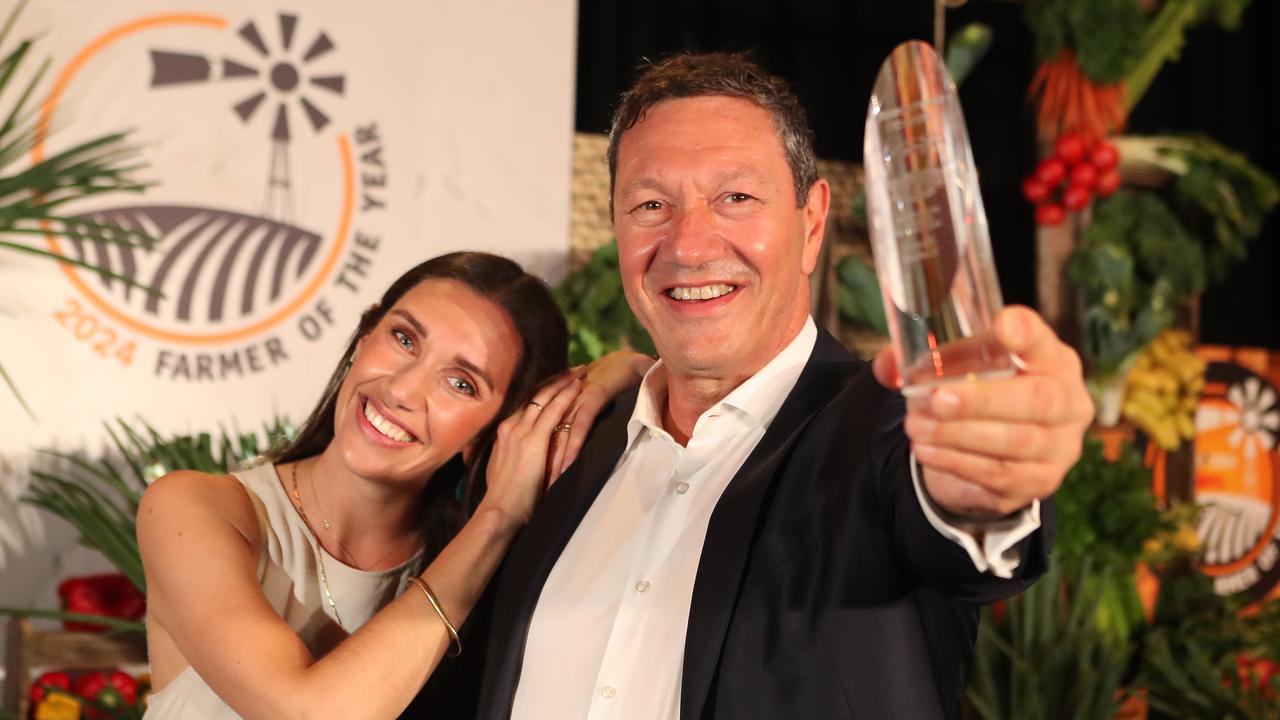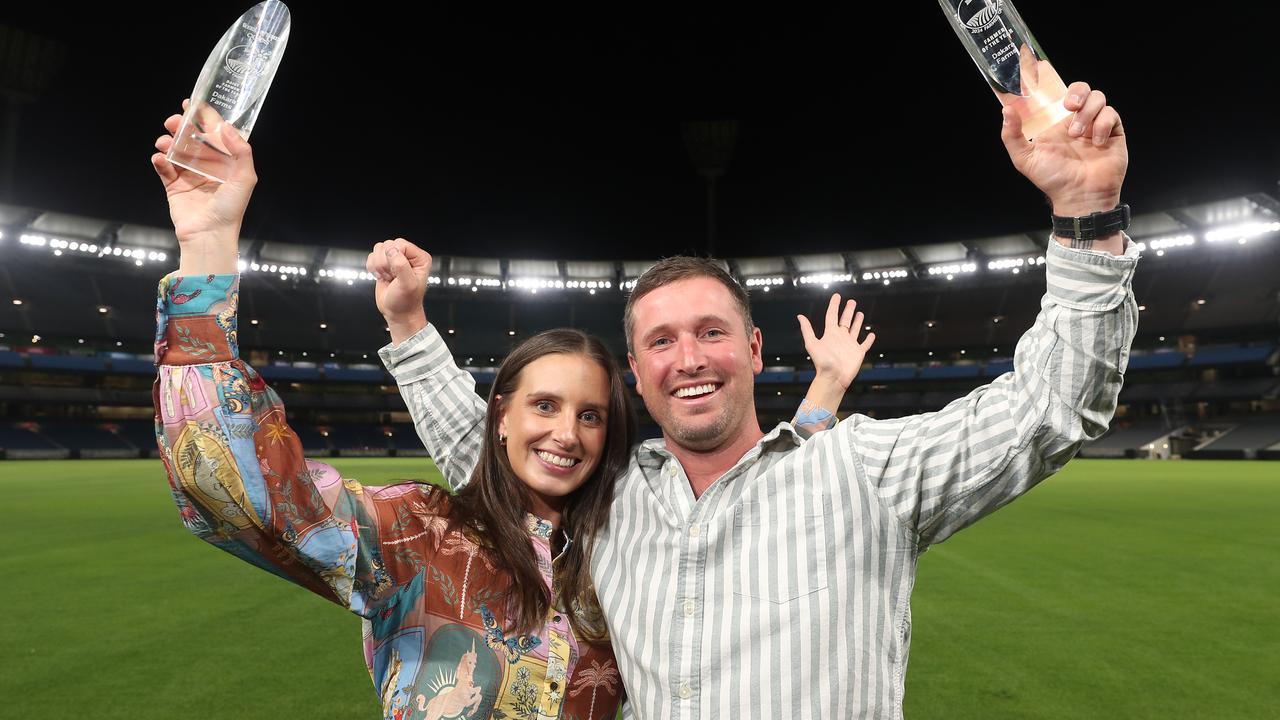EG Baker and Co cooking the seeds of success
COOKING up a seed production enterprise is just part of the agricultural dynasty of EG Baker and Co.
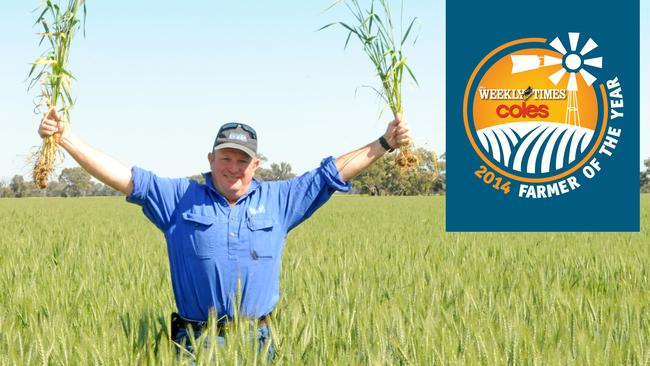
COOKING up a massive seed production enterprise is just part of the agricultural dynasty of EG Baker and Co.
Run like a corporation but owned by a family, this 2450ha swathe of land near Rutherglen in the North East produces high-quality seeds for croppers, grain as a commodity and cattle.
The multi-pronged approach is deliberate, Andrew Russell said, to keep a farming family viable. And while the public face is Baker Seeds and its sales of certified seed, there is much more to this than meets the eye.
Andrew is the son-in-law of Geoff and Judy Baker, and has seamlessly slipped into the role of cropping manager.
Two other sons-in-law — Ashley Fraser and Jason Wright — are also involved in running the businesses, looking after the cleaning and packaging plants, seed sales and livestock enterprises. Geoff’s brother, Ken, is also involved in the farming enterprise. Andrew is the one who makes sure the paddocks of crops they grow each year are as close to perfect as possible.
He’s a stickler for quality assurance and that means all the paddocks of crops grown are treated as if they are going to be sold for seed.
It is more than simply ensuring weed control is spot on.
“Seed production is the main focus and is the biggest part of EG Baker enterprises,” Andrew said.
“Depending on the year, up to 60 per cent of what we grow comes in to be sold as seed.”
Andrew said they aimed for a “zero tolerance” for weeds.
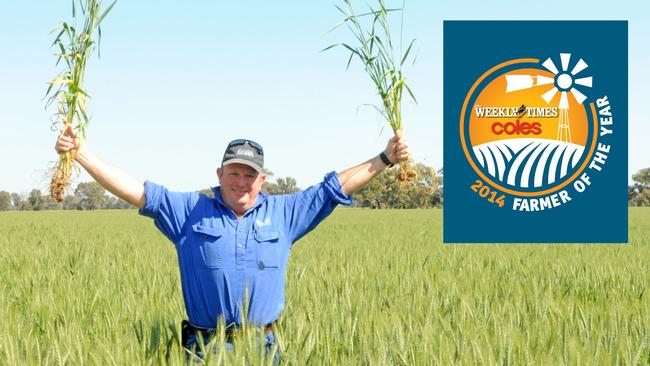
“We make sure we keep our paddocks clean over summer,” he said.
“It is about retaining moisture in the soil profile but it is more about ensuring that we don’t harbour pests in a green wedge over summer.”
Andrew said the dedication to producing a seed crop — they grow wheat, faba beans, lupins and canola — that offered buyers a 99 per cent clean seed required a lot of work.
“We will go into a paddock regularly to check for weeds or rogue plants, and unless these paddocks are going to offer up to a 99 per cent clean seed, they are sold as stock feed,” he said.
Andrew said the last thing farmers needed when they bought seed was grain contaminated with other varieties, or perhaps worse, with resistant weed seeds.
“You would not want to be planting back resistant rye-grass into your paddocks with your wheat,” he said.
“That’s why we do not hesitate in downgrading a paddock from seed to feed, as we need to protect the integrity of the seed we offer for sale.
“It’s not ideal, but we will ‘fail’ a crop if it will not meet our high levels of quality assurance.”
Because of rotations and logistics, not all paddocks can be grown for seed each year.
But each year, every paddock is checked regularly and about 10 per cent are “rogued”, or weeded by hand to ensure the integrity of the seeds produced.
“It’s part of our quality assurance process,” Andrew said.
“And basically we treat all our paddocks as potentially going for seed.
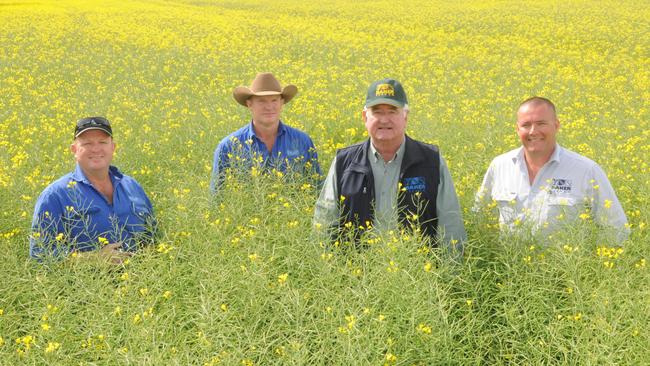
“We know they all won’t go as seed but they will be paddocks for seed down the track and it is vital that we keep on top of weed control.”
Andrew said as farmers themselves, they understood the financial pressures of cropping. And when farmers looked at their costs of production, one of the first things that would be crossed off in tight years was buying in seed, with many opting to keep seed from the crops they grew the previous year.
“When times get tight, it really is a cost that farmers think they can avoid,” he said.
“But we believe that the returns from using newer germ plasm, or varieties with better disease packages and higher yield potential are there, and that is why we are so particular about offering seed which has such high integrity.
“It’s all about having a plan, in my opinion, with purchasing seed.
“Instead of trying to update all varieties each year, we think you can spread it out over several years, maybe changing long season varieties one year, and mid-season the next and so on.”
The quality assurance goes beyond ensuring there are no weeds or no volunteer crops in the paddocks.
All working equipment is cleaned, from the augers to the trucks to the harvesters.
“We grow 30 different varieties here and at harvest when you swap from one to the next, it takes two to three hours to blow out and wash equipment,” Andrew said.
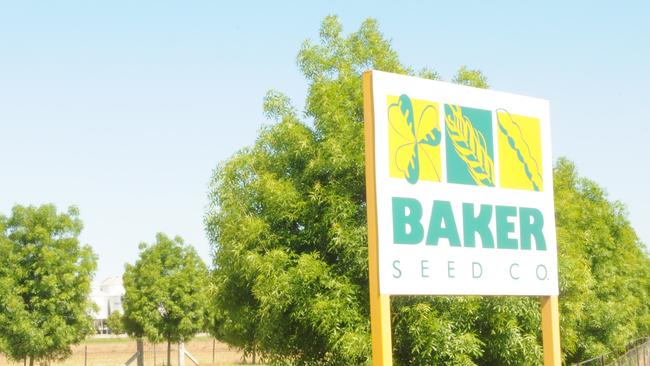
“It does get frustrating at times when you see how quickly your neighbours swap from one paddock to the next, but it is worth the extra effort when you consider the kinds of returns we get.
“It has to be top hygiene the whole way through.”
It’s also why the Bakers also cart their own fertiliser from Melbourne.
They will not risk a “dirty” truck or one that has carted seed down to Melbourne and then picked up a load of fertiliser on the way back, as they fear the fertiliser will then contaminate their otherwise clean paddocks.
The Baker Seeds crops are grown like any other.
The amount of nitrogen put on is calculated throughout the season and takes into consideration the potential of that crop as well as the available moisture.
“Our baseline philosophy is to maximise production of the crop as the year unfolds, whether it is destined for seed or not,” Andrew said.
“This year we have not invested as much in nitrogen, as ironically some of our paddocks were too wet at the start of the season and the potential is not there. It’s about making the call for fertiliser to match the potential of the crop.”
The EG Baker enterprise also includes cattle, which are sometimes grazed on the paddocks where seed varieties are grown.
But even then, they follow a strict regimen and lock up between swapping paddocks to ensure they are not moving weeds or other seeds around.
That attention to detail and quality assurance runs deep at EG Baker and Co.

